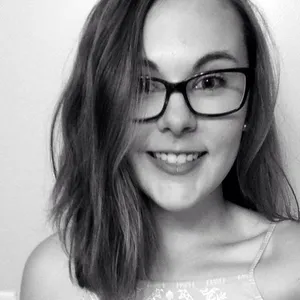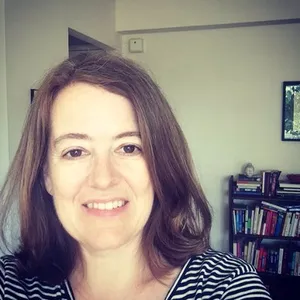AMERICAN WOMEN'S HISTORY INITIATIVE
Ariana Curtis: Museums and the Everyday Woman
When Débora Nazareno, an Afro-Indian woman who lived in remote Ecuador in the early 20th century, sat in her hand-carved boat seat to tell stories to her grandson, little did she know the seat would be the first object donated to a new Smithsonian museum nearly a century later.
/https://tf-cmsv2-smithsonianmag-media.s3.amazonaws.com/blogging/featured/sawhi-ariana-curtis-1024x512.png)
When Débora Nazareno, an Afro-Indian woman who lived in remote Ecuador in the early 20th century, sat in her hand-carved boat seat to tell stories to her grandson, little did she know the seat would be the first object donated to a new Smithsonian museum nearly a century later.
That boat seat now resides in the National Museum of African American History and Culture, where it represents the stories of everyday women—stories that can be as inspirational as those of renowned women found in the museum, including Oprah Winfrey and Shirley Chisholm.
In a recent talk at TEDWomen 2018 (below), Ariana Curtis, the museum’s Curator for Latinx History and Culture, called on the museum sector to give equal time to both pioneering and everyday women, with the goal of presenting a more accurate picture of history. She pointed to Nazareno’s boat seat as an engaging example.
“Exceptional women are inspiring and aspirational … but those stories are limiting. Those stories do not create a broad base for incorporating women’s history and they don’t reflect our daily realities,” she said.
“Museums can literally change how hundreds of millions of people see women and which women they see. Rather than the first or the famous, it’s also our responsibility to show a regular Saturday at the beauty salon or the art of door-knocker earrings.”
Curtis’s TED talk, which has drawn more than 1 million views, marked the first time the Smithsonian has participated in a TEDWomen event. Curtis gave the talk as part of the Smithsonian American Women’s History Initiative.
The evening before TEDWomen 2018 kicked off, the Smithsonian held a donor event for the women’s history initiative in Palm Springs, California.
“The curators, historians and educators who are bringing amazing stories of women’s history to life are among the Smithsonian’s most dedicated and passionate scholars and experts. They inspire and excite me for what lies ahead,” said Robin Davisson, professor of molecular physiology at Cornell University and Georgetown University, Fellow of the American Association for the Advancement of Science and a member of the leadership committee for the Smithsonian American Women’s History Initiative.
Sign Up to Join the American Women's History Community
You'll get the latest news, updates and more delivered directly to your inbox.
The Smithsonian American Women's History Initiative is supported in part thanks to people like you. Make a gift now and help us amplify women's voices, reach the next generation, and empower women everywhere.


